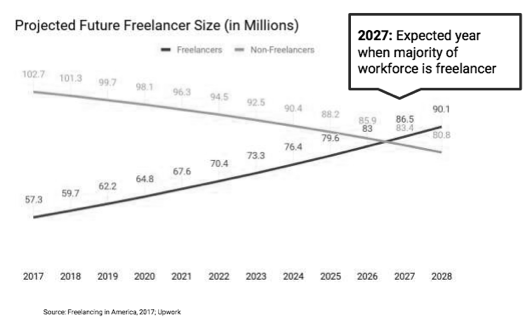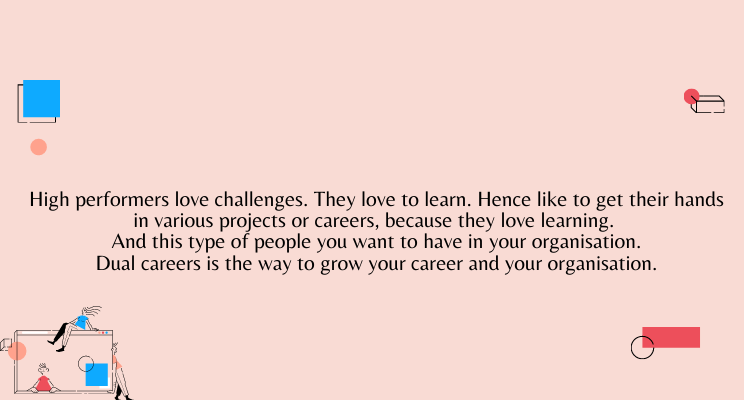The topic of dual career is very dear to my heart. I believe that people reach their highest potential when they are doing beyond their role and their regular job. I believe that through dual careers we can set people for success, and companies can benefit by retaining the talent.
To me, developing career paths is all about designing meaningful jobs. And they should be separated from salary increases. In the words of Adam Grant, writer and organisational psychologist at Wharton Business School, salary increase isn’t a carrot you show to motivate people or the way to design career. It’s a symbol of how much you value them. We must motivate our employees by designing meaningful jobs. Meaningful jobs are where there is freedom. Mastery. Connection. Impact. Clear communication and ownership. You can still appreciate by paying them well. But work is more than making a living. Jobs offer dignity, purpose, status, and belonging. And we as managers and business owners hold responsibility for crafting careers where employees get all these.
I was speaking at one of the HR panels, when the question was asked by someone in the audience on how to retain millennials. This is the type of question, which many of us (HRs) love to answer. While I strongly believe in various employee motivational and growth programs, I think one of the ways we can keep our employees long-term is to allow them to speak openly about their side projects. Let’s agree, that all ambitious millennials and younger generations have side hustles, freelance gigs, or at least they dreams about them.
In US, according to US Labour Department, in 2027 the majority of workforce will be freelance.

A portfolio career, by definition, is one which consists of multiple part-time jobs. Sounds familiar? Instead of weekend gigs and temporary positions, however, a portfolio career could be a full-time commitment which comprises a balance of freelance work, consulting, personal projects, board membership and other activities that demand expertise under flexible conditions. To many companies this seems outrageous. They think that when you allow side projects to employees, they might leave you too soon. They might not work during working hours and spend time on their projects instead. They might not be invested in your company. They might think of quitting and stealing your business ideas. But believe me, all these employees can do even without a side hustle. The best and most ambitious people like to get their hands in various projects or careers, because they love learning. And this type of people you want to have in your organisation. In fact, attracting such multi-talented workers through attractive work environments, is the key to growth and success to your company. I believe, that companies or projects which do not allow their employees to work flexibly and do not hire portfolio workers will struggle to hire and attract talent. Contracts that prohibit side hustles (or worse: that claim ownership over any intellectual property generated during the term of employment) will hurt recruiting and retention. Through portfolio careers, employees can accumulate more connections and knowledge which will also enable them to be more sensitive to the winds of the market and acquire the best and most updated know-how and skills. On the contrary, individuals working on only one role might have less opportunities to update their skills and thus can more easily become irrelevant or outdated. I believe, this is a win-win situation for both employer and employee.
This article is an excerpt from my book “HR Atlas: A Roadmap to Healthy Organisation For Start-ups, Small & Mid-Sized Businesses”.


